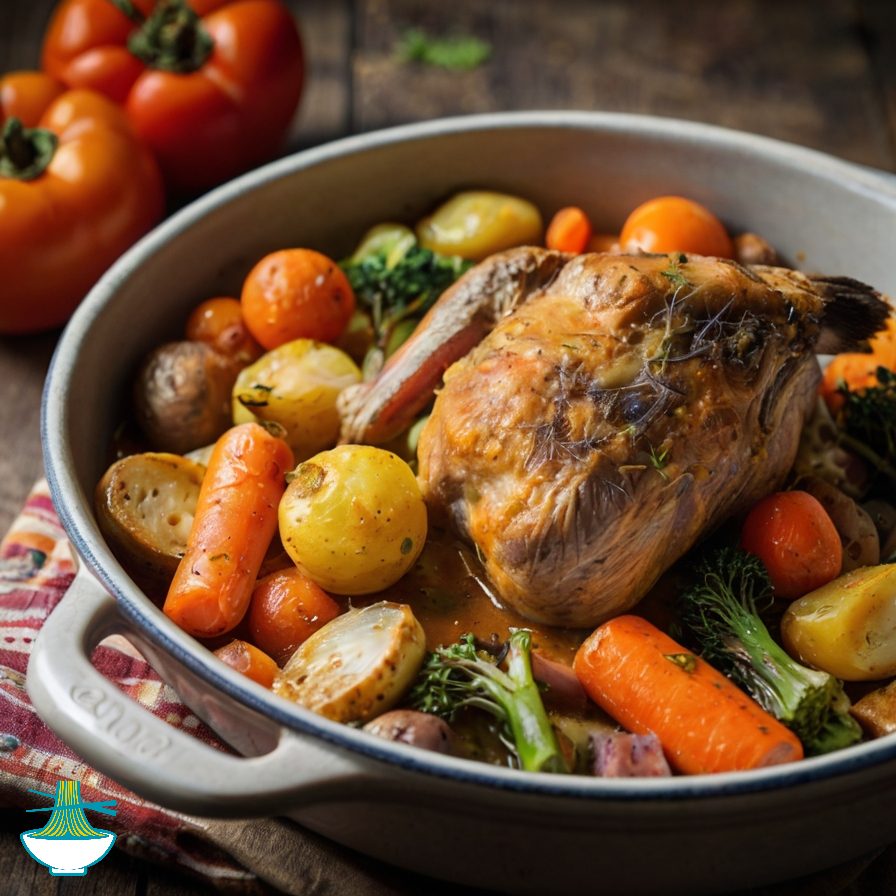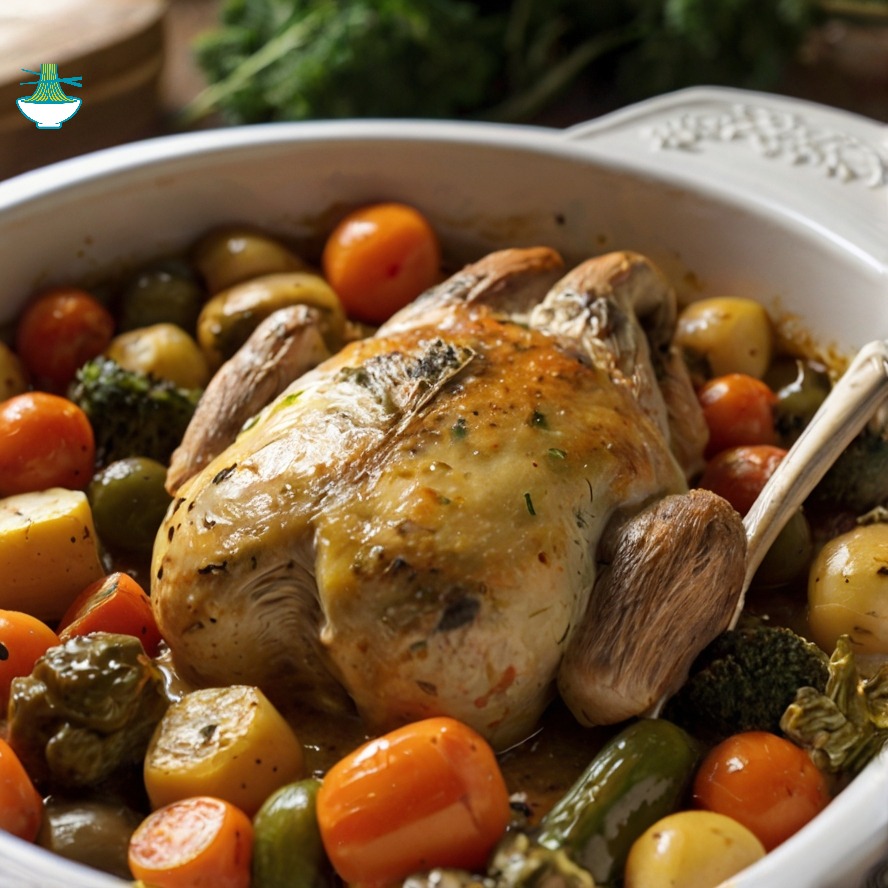Welsh Rabbit Casserole is a hearty baked dish that originated in Wales. It combines the rich flavors of Welsh Rabbit (a cheese sauce typically made with Cheddar cheese and beer or ale), tender vegetables like potatoes, carrots, and onions, and sometimes includes chunks of meat such as ham or bacon. The dish is baked until the cheese sauce is bubbly and the vegetables and meat are tender, creating a comforting and satisfying meal.
Historically, Welsh Rabbit, also known as Welsh Rarebit, has roots dating back to the 18th century in Wales. It was a popular dish among the working class due to its affordability and hearty nature. The name "rabbit" is believed to be a corruption of the term "rarebit," which itself is a play on words, possibly originating from "rabbit" being a term used to mock the Welsh for not eating real rabbit meat. Over time, Welsh Rabbit evolved into various regional versions, including the casserole style that incorporates additional ingredients like vegetables and meat, offering a wholesome and flavorful twist on the traditional dish.
Ingredients:
- 1 cup Welsh Rabbit (cheese sauce)
- 2 cups mixed vegetables (such as potatoes, carrots, and onions), diced
- 1 cup cooked meat (ham or bacon), diced (optional)
- Salt and pepper to taste
- 1 tablespoon olive oil

Method of Preparation:
1. Preheat your oven to 375°F (190°C) and grease a baking dish with olive oil.
2. Prepare the Welsh Rabbit cheese sauce according to your preferred recipe or using a store-bought version.
3. In a mixing bowl, combine the diced mixed vegetables and cooked meat (if using).
4. Season the vegetable and meat mixture with salt and pepper to taste.
5. Spread half of the vegetable and meat mixture evenly on the bottom of the greased baking dish.
6. Pour half of the Welsh Rabbit cheese sauce over the vegetable and meat layer.
7. Repeat the layers with the remaining vegetables, meat, and cheese sauce.
8. Cover the baking dish with foil and bake in the preheated oven for 30 minutes.
9. Remove the foil and bake for an additional 10-15 minutes or until the top is golden brown and bubbly.
10. Let the casserole cool slightly before serving. Enjoy your Welsh Rabbit Casserole!
Nutrition Value:
1. Welsh Rabbit (cheese sauce):
- Calories: Approximately 200 calories per cup
- Carbohydrates: About 4-5 grams per cup
- Protein: Around 10-12 grams per cup
- Fat: About 15-20 grams per cup
- Sodium: Varies based on recipe, typically around 500-800 milligrams per cup
- Cholesterol: Around 50-60 milligrams per cup
- Nutritional Benefits: Provides calcium for bone health, protein for muscle repair, and healthy fats for energy.
2. Mixed Vegetables (potatoes, carrots, onions):
- Calories: Approximately 50-100 calories per cup, depending on the mix
- Carbohydrates: About 10-20 grams per cup
- Protein: 1-2 grams per cup
- Fat: Minimal, usually less than 1 gram per cup
- Sodium: Varies based on preparation, typically low
- Cholesterol: Cholesterol-free
- Nutritional Benefits: Rich in vitamins (such as vitamin C from carrots), minerals (like potassium from potatoes), and dietary fiber for digestive health.
3. Cooked Meat (ham or bacon):
- Calories: Varies depending on type and cut, approximately 100-200 calories per cup
- Carbohydrates: Minimal, usually less than 1 gram per cup
- Protein: Around 15-25 grams per cup
- Fat: Varies based on fat content, typically 5-15 grams per cup
- Sodium: Varies based on preparation, can be high in processed meats
- Cholesterol: Can be high, especially in bacon
- Nutritional Benefits: Good source of protein, iron, and B vitamins, but should be consumed in moderation due to potential high sodium and cholesterol content.
4. Salt and Pepper:
- Calories: Negligible
- Carbohydrates: Negligible
- Protein: Negligible
- Fat: Negligible
- Sodium: Provides sodium based on usage, should be used in moderation
- Cholesterol: Cholesterol-free
- Nutritional Benefits: Adds flavor to the dish but should be used sparingly due to sodium content.
5. Olive Oil (1 tablespoon):
- Calories: Approximately 120 calories per tablespoon
- Carbohydrates: Negligible
- Protein: Negligible
- Fat: Around 14 grams per tablespoon (mostly monounsaturated fats)
- Sodium: Negligible
- Cholesterol: Cholesterol-free
- Nutritional Benefits: Contains heart-healthy monounsaturated fats and antioxidants, beneficial for cardiovascular health when used in moderation.


Comments